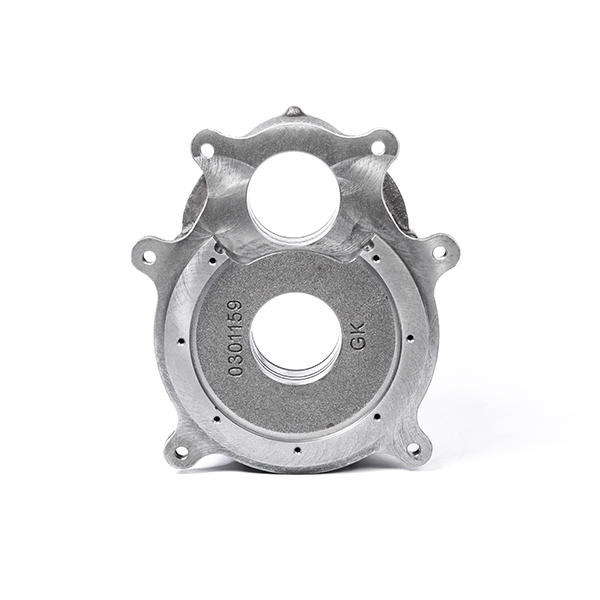Mobile:+86-311-808-126-83
Email:info@ydcastings.com
English
Exploring the Benefits and Techniques of CF8 Casting in Modern Manufacturing
Understanding CF8 Casting A Comprehensive Guide
CF8 casting is a critical component in various industrial applications, particularly in the field of metalworking and manufacturing. This type of casting is renowned for its excellent corrosion resistance, strength, and versatility, making it an ideal choice for a variety of industries, including chemical processing, piping systems, and food production. This article delves into the nuances of CF8 casting, its properties, applications, and the processes involved in its production.
What is CF8 Casting?
CF8 refers to a specific grade of stainless steel casting that is part of the ASTM A351 standard. The designation 'CF' indicates that it is a chromium iron casting, while the number '8' denotes that it contains a specific chemical composition, primarily consisting of iron, chromium, nickel, and a small percentage of carbon. Typically, CF8 contains approximately 18% chromium and 8% nickel, which enhances its corrosion resistance and mechanical properties. This alloy composition is similar to that of the 304 stainless steel used widely in various applications.
Properties of CF8 Casting
One of the standout features of CF8 casting is its excellent corrosion resistance, which stems from the high chromium content. This makes CF8 an ideal choice for environments that may expose materials to corrosive agents, such as chemicals and saltwater. Additionally, the presence of nickel enhances the alloy's toughness and ductility, allowing it to withstand mechanical stress without deforming.
In terms of mechanical properties, CF8 casting exhibits good tensile strength and yield strength. It can be easily welded and machined, promoting its use in manufacturing complex components that require precision and durability. Another significant advantage is its ability to perform well at both elevated and low temperatures, making it suitable for a wide range of operating conditions.
Manufacturing Process of CF8 Casting
cf8 casting

The manufacturing process for CF8 casting typically involves several key steps. It commences with the selection of high-quality raw materials that meet the specified chemical composition. The first step in the actual casting process is melting the raw materials in an induction furnace, which ensures a homogeneous mixture. Once the molten metal reaches the desired temperature, it is cast into molds to form the required shapes and sizes.
After the metal has cooled and solidified, the castings are removed from the molds. At this stage, the castings undergo a series of secondary processes, including cleaning, machining, and heat treatment. These processes are crucial for enhancing the mechanical properties of the castings and ensuring they meet specific tolerances for their intended applications.
Quality control is a fundamental aspect of the CF8 casting process. Various tests, including chemical analysis and mechanical testing, are conducted to ensure that the final product meets the standards required for its specific application. This quality assurance is vital in industries where the reliability and durability of components are of utmost importance.
Applications of CF8 Casting
CF8 casting finds applications across a broad spectrum of industries. In the chemical processing sector, it is commonly used for valves, pumps, and fittings that require resistance to aggressive chemicals. In piping systems, CF8 is utilized for flanges and other fittings that benefit from its strength and corrosion resistance. Furthermore, the food and beverage industry relies on CF8 for manufacturing equipment that must adhere to stringent hygiene standards.
Another significant application of CF8 casting is in the oil and gas industry, where components must endure harsh environments and corrosive substances. The automotive sector also utilizes CF8 for various engine components that require both strength and resistance to heat and chemicals.
Conclusion
In summary, CF8 casting represents a vital material in industrial manufacturing, characterized by its exceptional corrosion resistance, durability, and versatility. Understanding its properties and manufacturing processes is essential for industries seeking to enhance the performance and longevity of their products. As technology advances and new applications emerge, the importance of materials like CF8 casting will continue to grow, making it a cornerstone in modern manufacturing.
-
Materials Used in Manufacturing Cap End Pipe FittingsNewsNov.24,2025
-
Material Properties of CF8M CastingNewsNov.24,2025
-
How to Inspect Pump Cap Ends for DamageNewsNov.21,2025
-
Backward Curved Impeller – Efficient Airflow Solutions for Industry | YD CastingsNewsNov.21,2025
-
Automobile Water Pump - Efficient, Quiet, Durable & ElectricNewsNov.21,2025
-
Impeller for Pumps – High-Efficiency, Durable, OEM-ReadyNewsNov.21,2025











